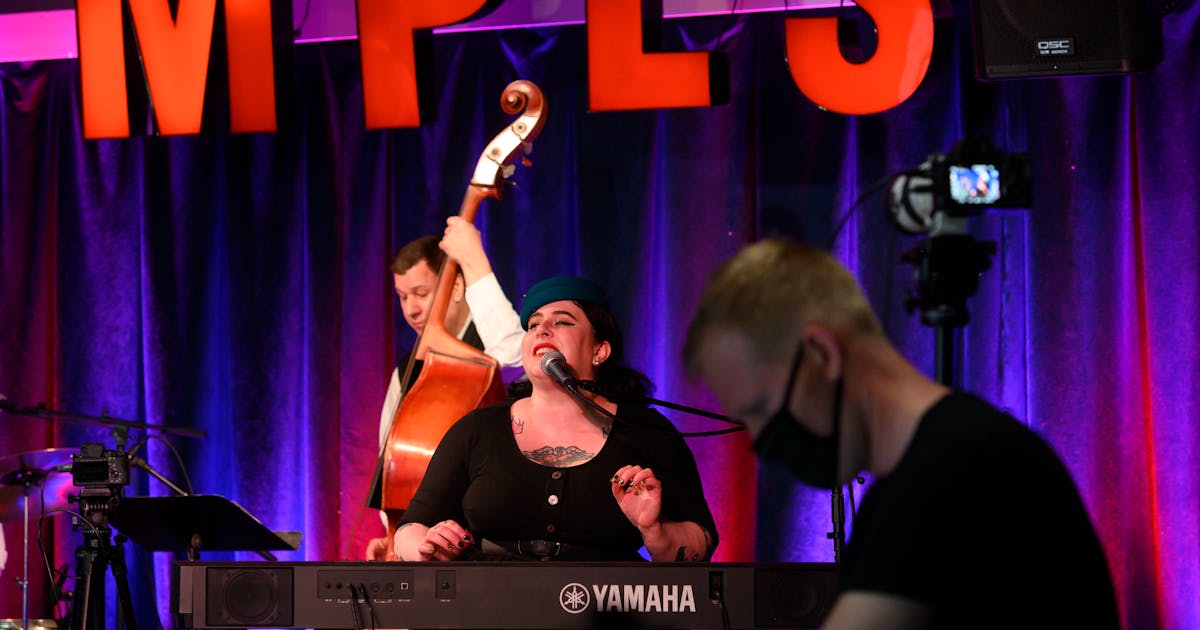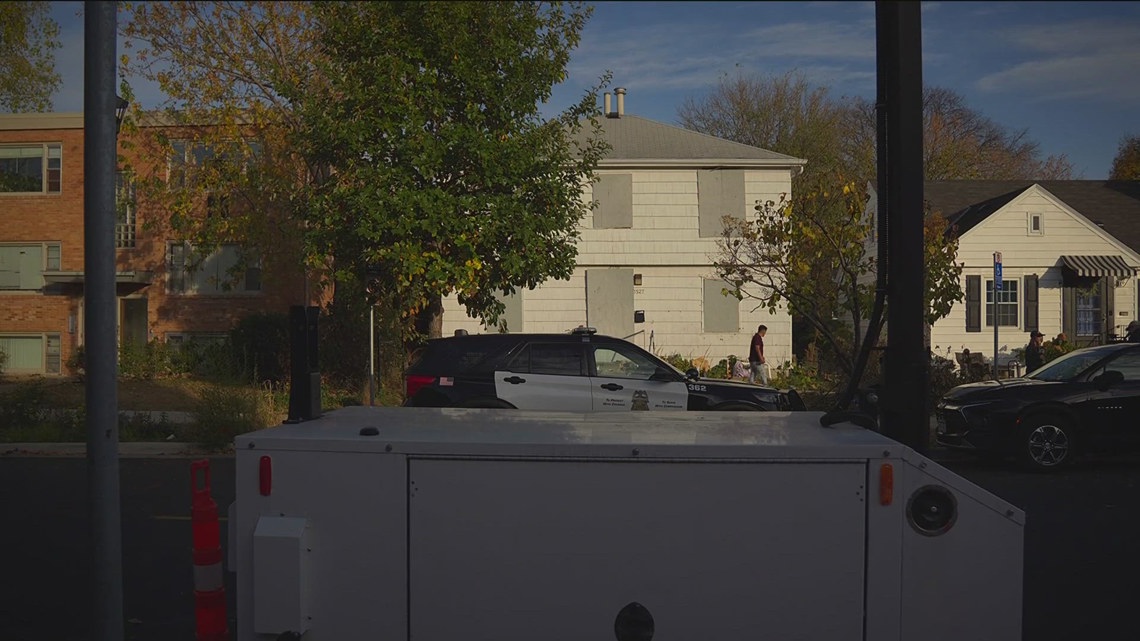Star Tribune
City of Minneapolis launches new census to better plug in to its music scene

The city of Minneapolis is trying to get plugged into its music economy.
Starting Friday, an online questionnaire dubbed the Minneapolis Music Census will begin asking musicians and music professionals within the city about their backgrounds, where they live, where and how they work, and other information related to their profession.
The census, which is anonymous, can be filled out over the next two weeks at mplsartsandculture.org. It’s being conducted by a company called Sound Music Cities out of Austin, Texas, where city-run music initiatives have helped the town earn its slogan as “the live music capital of the world.”
In Minneapolis, the census work is being spearheaded by the city’s new Arts & Cultural Affairs Department with support from the Minnesota Independent Venue Alliance (MNIVA), Meet Minneapolis, First Avenue, Hennepin Theatre Trust and other organizations within the music community — where the buzz for the data-collecting project is building.
An offshoot of the National Independent Venue Association that successfully lobbied for financial support from Congress during the pandemic, MNIVA brought the idea of the census to the Arts & Cultural Affairs Department last year after hearing of its success in other cities, including Seattle and New Orleans.
“We’re extremely optimistic about this,” said Jack Kolb-Williams, executive director of MNIVA and a longtime Twin Cities music promoter with the nonprofit all-ages organization Catalyst Music.
“It will provide a much more thorough picture of what is happening in our music community, a foundation of data that can be valuable for advocacy and addressing the issues that need to be addressed.”
Sound Music Cities founder Don Pitts, a former music liaison with the city of Austin, said the data his company collected in other cities already has been put into effect at their respective city halls.
Some examples: Sacramento, Calif., added another tier for entertainment licenses making it easier for restaurants and coffee shops to host live music. Chattanooga, Tenn., sparked more collaboration from the local university and Chattanooga Tourism, plus it enlisted a program for journalism students to work for various media outlets spotlighting artists and venues in lieu of full-time music writers in town.
“What we have seen is, there are usually a couple of big-ticket items that get addressed and a lot of smaller tweaks and adjustments from community organizations using the census data,” Pitts said.
Of course, predicting what might happen at Minneapolis City Hall once the data is compiled is more of a guessing game.
The Minneapolis Park & Recreation Board has taken some public relations knocks the past couple of years since it ignored a petition to start paying musicians for its Music in the Parks series, and for trying to charge a licensing fee for buskers in parks.
Mayor Jacob Frey issued a statement supporting the census.
“Minneapolis musicians are world-class,” Frey said. “So are our city’s venues, clubs, festivals, radio stations and audiences. We want the world to know about the brilliance of our unique and diverse music scene, and the Minneapolis Music Census will help guide us there.”
The city’s director of the Arts & Cultural Affairs Department, Ben Johnson, believes the census will see real results. He said his department’s very existence — conceived during the pandemic — is evidence the city is getting more serious about boosting the music scene alongside all the other arts sectors.
“The city hasn’t had [an arts] department for 50 years, so it’s playing catch-up,” Johnson said, emphasizing he wants the census to reach all corners of the music scene: “I want to hear from Native musicians, East African musicians and everyone that reflects this city’s rich diversity.”
Some of the ideas Johnson threw out for after the census is completed include: programs promoting access to studios, audio and light technicians, and other mentors for rising musicians; and maybe even a program to support artists going to the annual South by Southwest Conference in Austin.
Johnson also urged non-musician professionals who work in venues, studios, education and other music-related businesses to fill out the online questionnaire. The deadline is April 26.
“This is a great way for us to get to know our music scene and see who really is in it,” he said, “and to find ways to get artists to be seen and developed.”
Minneapolis Music Census
Online: mplsartsandculture.org
Deadline: April 26.
Star Tribune
Minneapolis Mayor Jacob Frey rebuffs calls for police chief’s firing

Anti-police brutality activists interrupted a Minneapolis City Council meeting Thursday to call for Police Chief Brian O’Hara’s firing, saying his department failed a Black man who begged police for help for months, to no avail, before he was finally shot in the neck by his white neighbor.
John Sawchak, 54, is charged with shooting Davis Moturi, 34, even though three warrants had been issued for his arrest in connection with threats to Moturi and other neighbors.
Activists showed up at the council meeting and asked for time to talk about the case. Instead, the council recessed and activists took the podium and castigated the city for failing Black people, even as state and federal officials are forcing the police department into court-sanctioned monitoring because of past civil rights violations.
Nekima Levy Armstrong, founder of the Racial Justice Network, said O’Hara needs to be held accountable.
“This is not the first time instance where the community has raised concerns about his poor judgment, poor leadership, blaming the community and excuses. It’s completely unacceptable for him to get away with it,” she said. “How many Black people’s doors have they kicked in for less?”
On Thursday the council voted to request the city auditor review the city’s involvement in and response to the matters between Moturi and Sawchak.
Mayor Jacob Frey released a statement in response saying he supports the council’s call for an independent review of the case, but O’Hara “will continue to be the Minneapolis police chief.”
Protesters also questioned why the public hadn’t heard from Community Safety Commissioner Toddrick Barnette, who called a news conference within hours to say he’s not going to fire O’Hara and the city leadership supports him.
Star Tribune
Backyard chickens approved for more areas in Woodbury, but not typical city lot

A Girl Scout from Troop 58068 told the Woodbury City Council recently that they should allow backyard chickens in the city: They cheer people up, she said.
It turned out that chickens were on an upcoming agenda and, perhaps pushed a bit by the scout’s lobbying, the Woodbury City Council at their next meeting passed a new ordinance allowing for backyard hens.
The new ordinance went into effect on Oct. 23, the night of the council meeting, and will allow people who live on property zoned R-2, a “rural estate” district, to have backyard chickens. A typical city lot is zoned R-4 and those areas still cannot have chickens, the council said.
The city has received requests “here and there” for the last several years about backyard chickens, City Council Member Andrea Date said.
Backyard chickens come have home to roost — and never leave — in a host of other Minnesota cities that allow them, from Hopkins to Thief River Falls. It’s long been allowed in both St. Paul and Minneapolis, and new cities started approving backyard coops during the pandemic, when interest spiked.
In Woodbury, it wasn’t until the question was included on the city’s biannual survey that city staff knew how people felt. The survey found less support for chickens on a typical city lot — just 13% of respondents said they strongly approve of the idea while 43% percent strongly disapproved — but a majority approved of backyard chickens on lots of 1 acre or more.
The city’s rules until recently only allowed chickens on “rural estate” properties of five or more acres.
The new ordinance allows up to six hens, but no roosters, on property less than four acres that meets the zoning requirements. Larger properties can have an additional two chickens per acre above four acres. The ordinance also sets a height limit for chicken coops of 7 feet. No license or permit is required in Woodbury for backyard chickens.
Star Tribune
Anonymous donor pays overdue bill for Fergus Falls home where town’s first Black resident lived

A $10,000 overdue special assessment bill threatening tax forfeiture of a historic Fergus Falls home was paid off this week thanks to an anonymous donor.
Prince Albert Honeycutt lived at 612 Summit Avenue East, renamed Honeycutt Memorial Drive in 2021. Not only was Honeycutt the town’s first Black resident — settling there in 1872 from Tennessee — he was the state’s first Black professional baseball player, first Black firefighter and first Black mayoral candidate.
He was an early pioneer and prominent businessman who owned a barbershop in town. Missy Hermes, with the Otter Tail County Historical Society, said Honeycutt and his wife were likely the first Black people in Minnesota to testify in a capital murder trial of a man who was convicted and hanged in Fergus Falls.
“In other places, you would never have a Black person testifying against a white person, especially a woman, too, before women could vote even,” Hermes said. “Obviously he was respected enough.”
Nancy Ann and Prince Albert Honeycutt with their children inside the now-historic Honeycutt house in 1914. Photo from the collections of the Otter Tail County Historical Society.
When dozens of people from Kentucky moved to Fergus Falls in April 1898, known as “the first 85,” Honeycutt helped integrate them into the community.
He died in 1924 at age 71 and is buried in Oak Grove Cemetery in Fergus Falls.
Up until 2016, several owners lived in the Honeycutt home. But the city bought and sold the house to nonprofit Flowingbrook Ministry for $1 to take over the tax-exempt property and operate the ministry.
Ministry founder Lynette Higgins-Orr, who previously lived in Fergus Falls, moved to Florida several years ago and little activity has been going on in the historic home since. But she said there are plans to make it into a museum.



